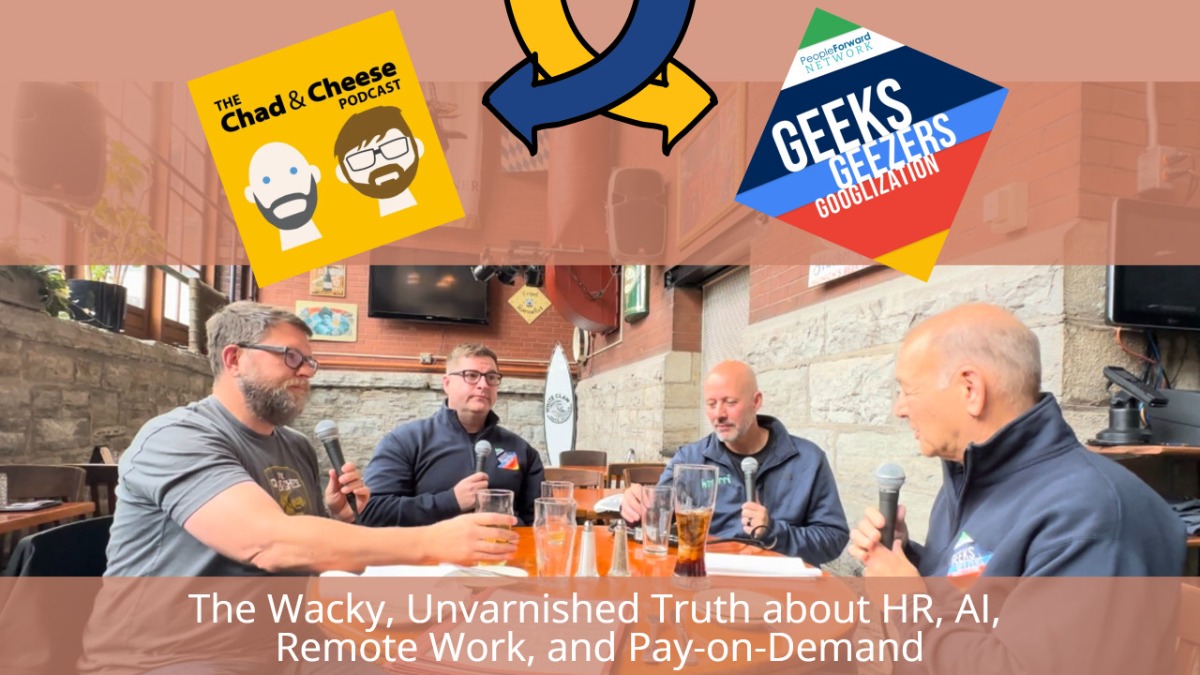The World Moved On. HR and Hiring Haven't!
May 09, 2023 1:01 pm
Greetings Earthlings,
Did you know the USB cable that charges the smartphone you might be holding right now has more computer power than the most advanced computers that sent Apollo 11 to the moon in 1969? Keep reading to learn some mind-boggling stats and how corporate America is up to its same old hypocrisy.
Do you remember the good old days when the coolest thing you could do with a computer was to play Pong? Or, if you’re like me, an older Baby Boomer. Computers were still fiction, and 8-track cassettes and push-button phones were as advanced as they got.
Well, those days are long gone, and we've come a long way.
Or have we?
So buckle up, as we take a ride through time and explore just how much and how fast the world has changed.
Let's start with a little history lesson. Back in 1969, NASA sent the Apollo 11 mission to the moon. That's right; we went to the moon! Up until that time, we wondered if it was made of green cheese. (It wasn’t!) But how did they manage to pull off such an extraordinary feat with technology that is less powerful than the USB cable that charges your phone … or even your toothbrush? The answer is the Apollo Guidance Computer (AGC).
The AGC was the computer that helped man land on the moon. It was the size of a small briefcase, had a processing speed of 0.043 MHz, and had a whopping 64 kilobytes (KB) of memory. For reference, the average file size of a photo taken on your smartphone is about 2 MB, more than 30 times bigger. In today’s dollars, the AGC cost about $1.5 million. It weighed 70 pounds. It might sound like a joke now, but that computer was the most advanced technology of its time.
Fast forward to the present day, and we have smartphones that have more power than the AGC ever dreamt of. An Apple iPhone 14 smartphone today has a processing speed of more than 3.4 (GHz) and 6 gigabytes (GB) of memory. That's a mind-boggling difference: 79,069 times faster and 93,750 times more storage. And that’s not even including the ability to store 1 terabyte (TB) or more in the cloud!
The cost? Only a few hundred dollars. The weight? Under ½ pound!
So, what does all this mean for HR, business, and employers?
Technology has evolved at a spectacular rate. The adoption of technology is even more mind-boggling. Statista estimates that over 86 percent of the world’s population owns a smartphone. While 100 million people started using ChatGPT in just 5 days, it took over 75 years for the telephone and 16 years for the mobile phone.
But guess what? Despite these fiction-like changes in technology, many companies are still using hiring processes designed for a paper-and-pencil world.
Think about it. The job application we use today was created in the 1960s when Baby Boomers flooded the job market. When you wanted to apply for a job, the job seeker scanned the newspaper’s classified ads, traveled to the business, filled out a paper application, and then waited for the phone to ring for an interview.
Sixty years later (in an Everywhere Work world), many organizations and their managers recruit and hire in the same way. Even when applications can be accepted online, the next steps in the process and method of hiring are the same as when man first landed on the moon. I can’t even count how many managers still print applications and require face-to-face, in-person interviews.
The world has moved on. Hiring and HR hasn’t.
Am I wrong?
In my keynote, Everywhere Workplace in a Never-Normal World, I talk about 5 trends that are disrupting and transforming human lives and business.
- Never-Normal is the New Normal.
- Labor shortages will continue to confound business leaders.
- The controversy over remote vs hybrid vs back-to-office is just getting started.
- AI and other tech will seem more like science fiction than reality.
- Organizations will pivot from offering jobs to meaningful work.
Which trend do you think will have the greatest impact on you, your career, and your company?
How would you prioritize these 5 trends?
Let's keep the conversation going. Please share with your connections and co-workers too.
And if you're connected with an HR and business group looking for a speaker, your referral will be greatly appreciated. Click here to contact me.
Hypocrisy 101: People Are Our Most Important Asset
The full episode (Wacky, Unvarnished Truth about HR, AI, Remote Work, and Pay-on-Demand) drops on The Geeks, Geezers, and Googlization Show this Wednesday, May 10. You can subscribe on YouTube, Apple, Spotify, or wherever you listen to podcasts.
Don't Let the SHIFT Hit Your Plans!


